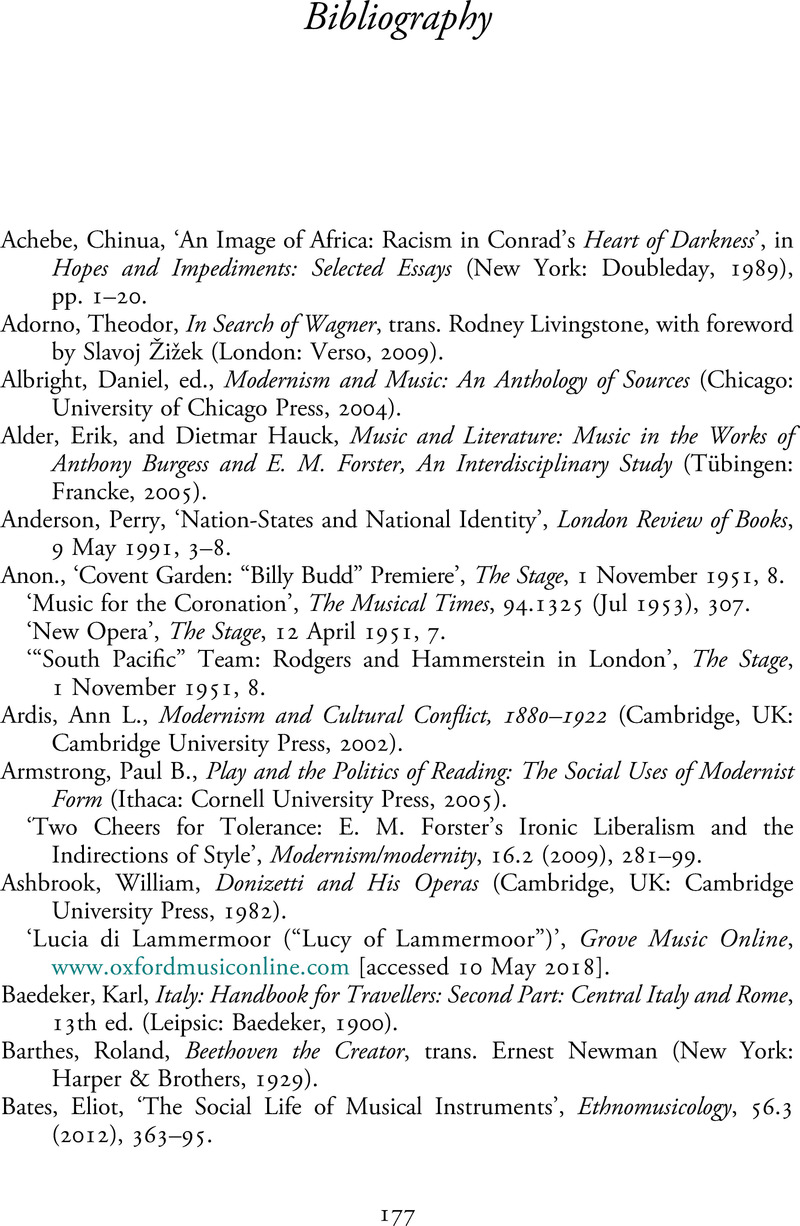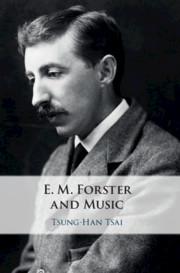Book contents
- E. M. Forster and Music
- E. M. Forster and Music
- Copyright page
- Contents
- Acknowledgements
- Abbreviations
- Introduction
- Chapter 1 The Rhythm of the Racial Other
- Chapter 2 The Queering of Musical Instruments
- Chapter 3 From Literary Heritage to National Character
- Chapter 4 The Problem of the Wagnerian Hero
- Chapter 5 Amateurism, Musicology, and Gender
- Postlude
- Bibliography
- Index
- References
- E. M. Forster and Music
- E. M. Forster and Music
- Copyright page
- Contents
- Acknowledgements
- Abbreviations
- Introduction
- Chapter 1 The Rhythm of the Racial Other
- Chapter 2 The Queering of Musical Instruments
- Chapter 3 From Literary Heritage to National Character
- Chapter 4 The Problem of the Wagnerian Hero
- Chapter 5 Amateurism, Musicology, and Gender
- Postlude
- Bibliography
- Index
- References
Summary

- Type
- Chapter
- Information
- E. M. Forster and Music , pp. 177 - 193Publisher: Cambridge University PressPrint publication year: 2021



